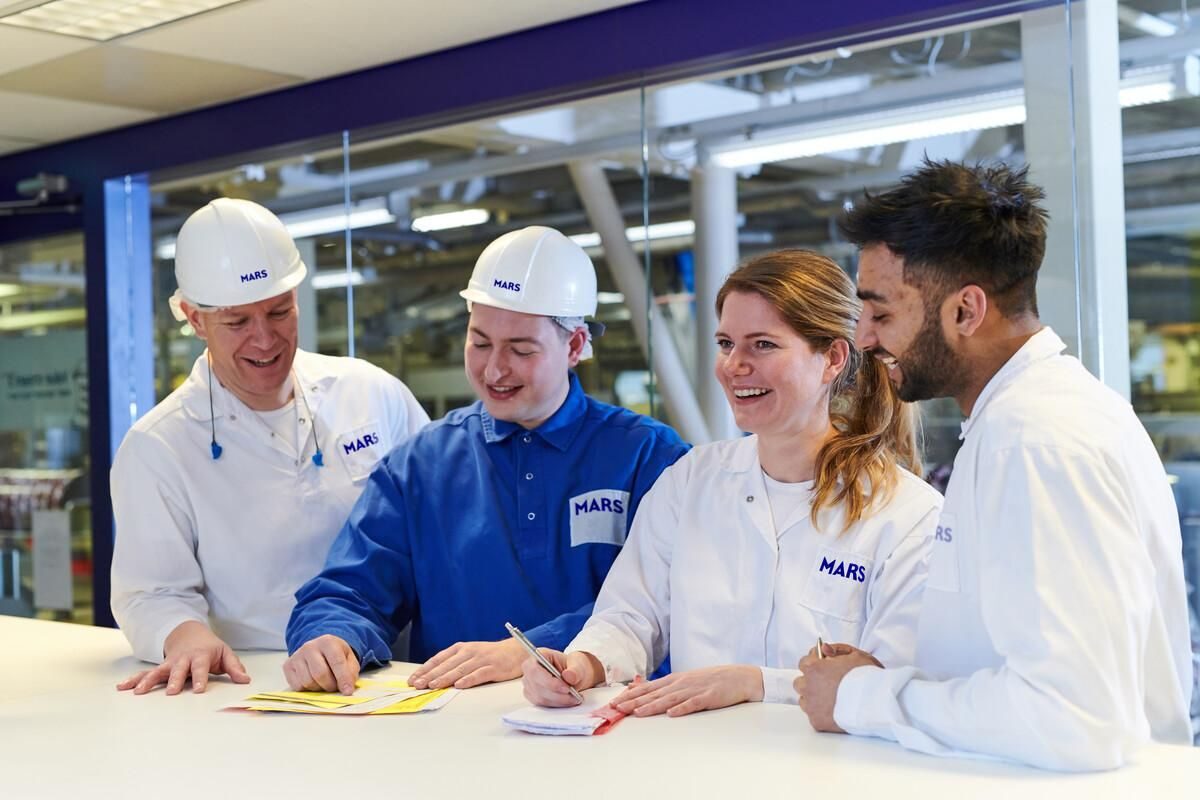Debunking the big myths about apprenticeships

As we celebrate National Apprenticeship Week, Vikki Marriott debunks the biggest myths surrounding apprenticeships.
To go to university, or not to go to university, that is the question. Choosing your next career move requires careful consideration but many people are not aware of the breadth of options available to them.
While there’s no denying that higher education remains a popular option for many, it’s clear that the burden of undergraduate debt is growing. In fact, the government has estimated that university students in the most recent cohort (2021/22) will borrow roughly £45,800 on average before they graduate. This, coupled with the cost-of-living crisis and impact of Covid-19 on the university experience, is resulting in many young people beginning to seek out alternative career paths.
Enter apprenticeships.
It’s important that before we talk about the brilliant opportunities apprenticeships can create, we nod to the stigma which often surrounds this career route. Long seen as inferior to university courses, we know that the ‘A’ word can come with negative connotations attached for students, families, and even some businesses. But thankfully this is changing!
This National Apprenticeship Week I’m debunking the top five myths that are often associated with apprenticeships and setting the record straight on the wonderful, rewarding career paths they can bring.
Myth 1: They’re inferior to university courses
Incorrect! Apprenticeships offer work-based vocational learning that can culminate with degree-level qualifications. Those in apprenticeship programmes will immediately enter into the workforce, gain on-the job experience, make industry contacts, and earn money from day one. At Mars, apprentices spend 80% of their time gaining hands-on experience on the job and 20% on further learning over the course of their programme to ensure they are getting the best learning on and off-site.
In many cases, this path can lead to higher apprenticeships which ultimately provide a route into university level accreditation – for example, a Level 6 apprenticeship is equivalent to a bachelor’s degree and Level 7 which is considered comparable to a masters.
At Mars we offer apprenticeships in Engineering, Manufacturing, Data, Health & Safety, Sales and Customer Service. While our schemes typically work towards a Level 3, equivalent to two A-level passes, we do offer higher apprenticeship opportunities for our Digital Technology Solutions Professionals role at Level 6, and sour Chartered Manager position which go all the way up to Level 7…All without the burden of university debt.
Myth 2: Apprenticeships are only for school leavers
Definitely not! It’s important to remember that not all those who apply to apprenticeships or want to upskill need to be school leavers. At Mars we have seen a great number of people who are seeking a different career path or build a new skill set. We’ve had applications from those in their mid-40s who may have come through from the forces, police or from a completely different environment but are looking to diversify their career path.
To bring this to life, we have an Associate (what we call our employees at Mars) who has been at the business for 34 years working in our tech and IT team. This year he applied to do his Level 6 apprenticeship in our new digital programme. In the past, he never had the opportunity to go into further education so it’s a really exciting opportunity as he’ll ultimately achieve a bachelors.
Myth 3: Apprenticeships are paid badly
False! All apprentices are entitled to the National Minimum Wage, as well as employee benefits, such as holiday and sick leave, and time off for studying. Of course, the amount you earn as an apprentice will depend on your age and level of your apprenticeship.
At Mars, our competitive salary is above the National Minimum Wage and rises on completion of each academic year. The salary will also sit alongside annual bonus and benefits, just like any of our Associates at Mars UK.
Myth 4: Apprentices are only for manual or trade jobs
No! At Mars we have been in the business of apprenticeships for decades and while these typically were focused on manual jobs, in Engineering and Manufacturing, the variety of schemes has certainly diversified.
Today, we still offer apprenticeships in Engineering and Manufacturing but also in Data, Health & Safety, Customer Service, Sales and are expanding our programme in Digital upskilling schemes. The breadth of opportunities is only growing and it’s an incredibly exciting time to be looking at applying for apprenticeships – the opportunities are limitless!
Myth 5: Apprentices will struggle to progress in their career
Not on our watch! As a Mars Associate you can count on our commitment to your growth and development. Our Associates come from a diverse range of backgrounds, so we tailor our mentoring and coaching to each individual. In fact, around 78% of Apprentices continue at Mars after graduating, embarking on an exciting career here for many years.
By Vikki Marriott, Mars UK’s Apprenticeship Program Manager
For more information on Mars UK’s apprenticeship opportunities see here.











Responses